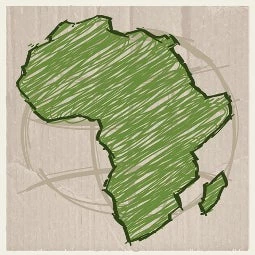
A new services policy database shows a perverse pattern. Landlocked countries tend to restrict trade in key “linking” services like transport and telecommunications more than other countries.
Zambia, for example, bravely liquidated its national airline in 1994, but it still denies “fifth freedom rights” to Ethiopia to fly the Addis Ababa-Lusaka-Johannesburg route, and to Kenya to fly the Nairobi-Lusaka-Harare route. In fact, the restrictive policies of many African countries make a mockery of the decade- old Yamoussoukro Decision (and a subsequent COMESA agreement) to liberalize air transport.
In telecommunications, the dramatic benefits of existing liberalization are obscuring the persistence of protection. Ethiopia and Zimbabwe are among those who still protect state-owned incumbents. And even other countries that have abandoned state monopolies still maintain stringent restrictions on entry and ownership.
These choices hurt them. Restrictive policies lead to more concentrated market structures and more limited access to services than these countries would otherwise have, even taking into account the constraining influences of geography and low incomes.
We find that even moderate liberalization in these sectors could lead to an increase of cellular subscriptions by 7 percentage points and a 20 percent increase in the number of flights. According to Darlington Mwape, Zambia’s Ambassador to the WTO, when they finally privatized the long-standing telecom monopoly, Zamtel, and reduced the international gateway license fee from a prohibitive $12 million to $350,000, international and local call charges fell by more than 50 percent!
Why are poor policies more prevalent in landlocked countries, even though they pay a particularly high price?
We find that the pay-offs from protection for well-organized vested interests are also likely to be higher in these countries. And these countries tend to have weaker checks on policy-makers’ tendency to favor vested interests at the expense of public welfare. For example, on the Polity IV Project’s “democracy indicator” - which ranges from 0 to 10, with higher scores reflecting greater opportunities available to citizens to express their preferences over alternative policies and the existence of stronger institutionalized constraints on the exercise of power by the executive branch – the average score for landlocked countries is a little over 1 compared to an average of nearly 4 for other countries.
The policies of landlocked countries are not the only problem. In international transport, it takes two to liberalize. Zambia cannot unilaterally introduce greater competition on the Lusaka-London or Lusaka-Johannesburg air routes. Both the United Kingdom and South Africa also need to agree to allow entry by third country airlines on each route. Our database shows that industrial and developing countries also use restrictive bilateral air service agreements (BASAs) to fragment the international market into a series of route-specific duopolies. The WTO would have been a natural platform to negotiate liberalization but powerful members have ensured that air traffic rights are excluded from its scope.
Today, industrial countries provide “aid for trade” to landlocked countries to improve their ports, airports, and telecommunications infrastructure. But they avoid the liberalization that would let service providers compete to use these facilities. Their tax-payers and the development community need to push for services reform. Otherwise these “trade-facilitating” investments will earn a poor return.
-------------
This post is based on "Landlocked or Policy Locked? How Services Trade Protection Deepens Economic Isolation", by Ingo Borchert, Batshur Gootiiz, Arti Grover and Aaditya Mattoo, World Bank Policy Research Working Paper 5942.


Join the Conversation